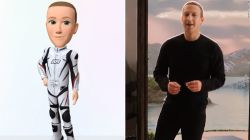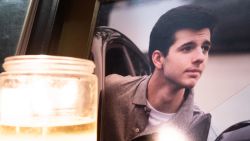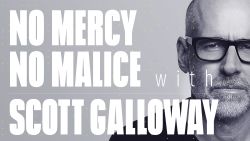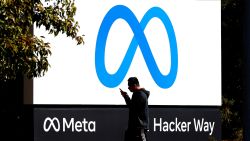Hundreds of companies have promised to halt advertising on Facebook and its sibling platform Instagram as part of month-long boycott officially set to begin on Wednesday, according to the civil rights groups behind the protest.
But even as a steady drumbeat of household names like The North Face (VFC), Pfizer (PFE) and Levi Strauss (LEVI) have joined the pressure campaign over the social network’s handling of hate speech and misinformation, the vast majority of Facebook (FB)’s biggest advertisers — the ones with presumably the most leverage – have stayed quiet.
A CNN Business analysis of Facebook’s top advertisers, based on data from market research firm Pathmatics, reveals that most of the 100 biggest ad spenders on the platform have not joined the boycott. The list of companies that have yet to pause advertising on Facebook includes Walmart (WMT), American Express (AXP) and Home Depot (HD).
Of the 25 largest spenders on Facebook ads last year, only three companies — Microsoft (MSFT), Starbucks (SBUX) and Pfizer (PFE) — have publicly confirmed their plans to pause marketing on Facebook. Those top 25 businesses, according to the data, accounted for an estimated $2 billion of Facebook advertising spend, or nearly 3% of Facebook’s 2019 revenues.
The data suggest the ongoing boycott may have a limited impact on Facebook’s bottom line, at least as it stands right now. Even if all 100 of Facebook’s biggest advertisers joined in, they would account for just 6% of the company’s annual ad revenue.
Last Friday, Facebook CEO Mark Zuckerberg told employees: “My guess is that all these advertisers will be back on the platform soon enough,” according to tech website The Information.
Facebook spokesperson Tom Channick confirmed the accuracy of the remarks to CNN Business. “We take these matters very seriously and respect the feedback from our partners. We’re making real progress keeping hate speech off our platform, and we don’t benefit from this kind of content. But as we’ve said, we make policy changes based on principles, not revenue pressures,” Channick added.
The majority of the top spenders haven’t made any statements on the matter. Most of the top 25 brands did not respond to requests for comment from CNN Business, including Walmart, Uber, Netflix, Domino’s and American Express. AT&T, which owns WarnerMedia, CNN’s parent company, also has not made a public comment regarding their advertising plans on Facebook.
Some brands provided non-committal responses. Home Depot, Facebook’s single largest advertiser in 2019 according to Pathmatics with $178.5 million spent on the platform, declined to say if it has made any changes. But, Home Depot said in a statement, it is evaluating the steps Zuckerberg said the platform would take during a livestream last week.
“Given the measures they just announced on Friday, we’re watching this very closely,” said Sara Gorman, a Home Depot spokesperson.
Procter & Gamble, the consumer goods giant and Facebook’s seventh-largest advertiser with an estimated $92.3 million spent last year, declined to comment on its plans for any specific advertising channel, but reiterated that it has launched a “comprehensive review” of its advertising partners.
“Where we determine our standards are not met, we will take action, up to and including stopping spending, just like we’ve done before,” said Marc Pritchard, the company’s chief brand officer, in remarks last week. Pritchard added that P&G does not advertise on thousands of sites because they do not meet the company’s standards.
A Wells Fargo (WFC) spokesperson said the company is “evaluating” its usage of Facebook and will make a decision “that is best aligned with the needs of our customers.”
“We condemn bigotry, racism and anti-Semitism and we are pleased to see Facebook take the needed additional steps to stop the usage of hate speech on their platform,” the spokesperson said.
Uber (UBER), which did not respond to CNN Business’s questions about whether it’s joining the boycott, announced a new advertising campaign on Wednesday running on TV, social media and its app. The campaign is called “No mask. No Ride” and features its drivers and food delivery workers.
Facebook generated nearly $70 billion in advertising revenue last year, according to its financial statements, most of which comes from small and medium-sized businesses.
Zuckerberg has agreed to join a meeting with the civil rights groups that organized the boycott to discuss their proposals for change, Andy Stone, a Facebook spokesperson, confirmed to CNN Business on Wednesday.
“They asked about having Mark at the meeting, and we’ve since confirmed that Mark is able to join,” Stone said in a statement. “We’re waiting to hear back and look forward to the opportunity to continue the dialogue.”
For now, at least, that dialogue will go on without the involvement of many of the companies Facebook and Zuckerberg might be the most scared to lose.
Editor’s note: This story’s original headline – “These are the big brands that haven’t pulled ads from Facebook yet” – has been revised to better reflect that, as the article notes, many of the biggest advertisers on Facebook have not pulled ads, and the effectiveness of the boycott is limited as a result. Additionally, an earlier version of this article misstated when Mark Zuckerberg made his remarks about advertisers returning to the platform.


























